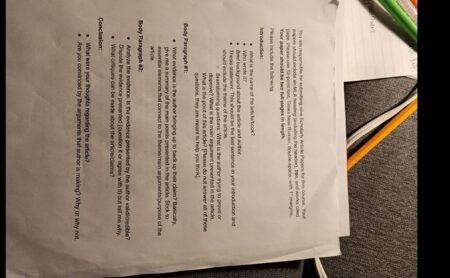In a bold move signaling opposition to corporate encroachments in the Democratic Republic of the Congo (DRC), equity stakeholders are rallying to contest the government’s plan to forcibly sell a 30% stake in a key mining project. The decision, widely perceived as a threat to investor confidence and economic stability, has ignited a fierce debate among local and international advocates. Business Daily explores the implications of this contentious proposal, which not only raises questions about property rights and governance but also the future of foreign investment in one of Africa’s richest mineral reserves. As voices from various sectors come together to challenge the forced sale, the outcome of this dispute could have far-reaching consequences for the DRC’s economic landscape and its relationship with global investors.
Equity Lobbies Government of DRC to Halt Sale of Key Stake Amid Market Concerns
In a decisive move that could impact the economic landscape of the Democratic Republic of Congo (DRC), Equity has stepped up its lobbying efforts to urge the government to reconsider the potential forced sale of a 30% stake in a vital sector. Stakeholders and market analysts have expressed concerns regarding the timing and implications of this sale amidst fluctuating commodity prices and a shaky investment climate. Equity’s stance is clear:
- Emphasizing market stability and investor confidence.
- Highlighting the long-term economic benefits of retaining strategic assets.
- Raising alarms about potential job losses and investment downturns.
Recent discussions between Equity representatives and DRC officials focused on the broader ramifications such a sale could have, not only on local businesses but also on foreign investor sentiments. The ongoing volatility in global markets underlines the need for caution as the DRC navigates its resource management strategies. Key points of contention include:
| Concerns | Impacts |
|---|---|
| Market Stability | Could deter future investments. |
| Asset Management | Risk of undervaluing critical resources. |
| Employment | Potential for increased unemployment rates. |
Implications of the Proposed Sale for DRC’s Economic Stability and Investment Climate
The proposed sale of a 30% stake in a significant sector of the DRC’s economy raises critical concerns regarding the country’s economic stability and its attractiveness to foreign investors. A rushed decision to offload this stake, especially under pressure from equity groups, could lead to perceptions of instability within the DRC market. Key factors influencing the investment climate include:
- Investor Confidence: The narrative surrounding forced sales can engender fear among potential investors, who may view such actions as capricious, making them hesitant to engage with the DRC market.
- Market Volatility: Uncertainty surrounding ownership stakes can lead to fluctuations in stock prices and market performance, impacting overall economic stability.
- Policy Consistency: Investors seek assurance that governmental policies will not abruptly change; forced sales can indicate a lack of long-term commitment to a free market.
The ramifications can extend beyond immediate financial implications. A negative shift in the investment environment could impede the DRC’s long-term economic development goals. Without foreign investment, the country risks losing out on necessary capital inflows, technology transfers, and job creation. To illustrate the potential impacts, consider the following table outlining possible scenarios based on varying levels of investment and market responses:
| Scenario | Investor Sentiment | Economic Growth Projections |
|---|---|---|
| Positive Environment | High Confidence | 7% Growth |
| Neutral Environment | Stable Confidence | 4% Growth |
| Negative Environment | Low Confidence | 1% Growth or Less |
Consequently, the DRC must carefully weigh the implications of the proposed stake sale not only for immediate fiscal gains but also for its long-term economic health and prosperity. If stakeholders in the DRC wish to maintain and enhance their investment climate, They should prioritize transparency, consistency in policy, and effective communication with both domestic and international investors. Here are several strategies that could help mitigate the negative impacts of the proposed stake sale:
- Engage in Dialogue with Investors: Building strong lines of communication with current and potential investors can help allay fears and clarify intentions. Hosting forums and discussions with industry leaders may foster an environment of trust and collaboration.
- Establish Regulatory Frameworks: Creating clear, consistent, and supportive regulatory frameworks will provide investors with the reassurance they need to commit their resources. This includes outlining the terms of sales and the protection of investments against sudden policy shifts.
- Highlight Economic Benefits: The DRC should emphasize the potential benefits of foreign investment, such as job creation, technological advancement, and infrastructure development, to attract investors and demonstrate long-term commitment to economic growth.
- Monitor Market Reactions: Proactively monitoring market responses to the stake sale can help the DRC make informed adjustments to its approach. If negative reactions are observed, swift action to rectify perceptions may be necessary.
- Showcase Success Stories: Highlighting positive case studies of past foreign investments in the DRC can enhance the attractiveness of the market. Demonstrating successful partnerships can serve as a testament to the potential benefits of investing in the country.
By adopting these strategies, the DRC can work to strengthen its economic foundation while ensuring that any decisions regarding stake sales are aligned with long-term growth prospects and investor confidence. Encouraging a stable investment climate will ultimately contribute to the country achieving its developmental goals and securing its position as a viable destination for foreign capital.
Strategies for Stakeholder Engagement and Dialogue in the Face of Financial Pressures
As financial pressures mount in the Democratic Republic of the Congo (DRC), stakeholders are increasingly rallying against the proposed forced sale of a 30% stake in key industries. Addressing the concerns of shareholders, community groups, and governmental entities requires innovative strategies for engagement and open dialogue. Effective communication channels must include:
- Regular Stakeholder Meetings: Establishing forums for direct engagement to discuss concerns and strategic directions.
- Transparent Reporting: Frequent updates on financial performance and investment status to foster trust and cooperation.
- Inclusion of Diverse Perspectives: Encouraging participation from a range of stakeholders ensures that decisions reflect the interests of all affected parties.
Moreover, it is crucial to create a collaborative environment that empowers stakeholders to contribute their insights. Developing a mutual understanding can enhance collective decision-making processes. Consider implementing:
| Engagement Strategy | Description |
|---|---|
| Focus Groups | Gathering small groups for in-depth discussions on specific issues. |
| Feedback Mechanisms | Establishing channels for ongoing stakeholder feedback on policies and changes. |
| Collaborative Workshops | Facilitating workshops to co-create solutions to mutual challenges. |
The Way Forward
In conclusion, the ongoing tensions surrounding the proposed forced sale of a 30% stake in the Democratic Republic of the Congo highlight the complex interplay between international investment interests and local governance. As equity lobbyists intensify their efforts to safeguard the sovereignty of the DRC’s resources, the implications of this situation extend beyond the borders of the nation, raising critical questions about fair trade practices, corporate responsibility, and the role of foreign entities in African markets. With stakeholders on all sides weighing their options, it remains to be seen how this dispute will evolve, ultimately shaping the future of investment and resource management in the DRC. The outcome of this conflict will not only impact local communities but also serve as a pivotal case study for similar scenarios across the continent. As the situation develops, close attention will be necessary to understand its broader ramifications.







